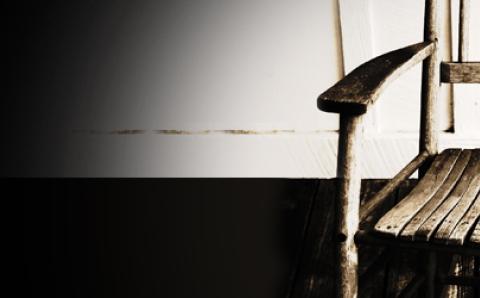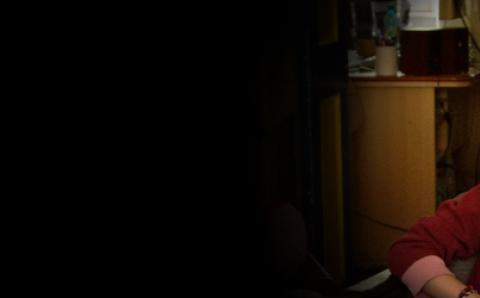Imagine living in a world where you are not able to love, not be in a romantic relationship, not have a family. Then imagine the sadness of not being able to change your feelings and realizing that you have no choice in who you are attracted to.
Welcome to my world.
I was 13 years old when I first realized that I am a lesbian. My first thought was, I’m a freak. No one can ever know. For the next decade or so, I dated boys and told myself that one day I’d be normal: I’d find the right man, fall in love, and have the family I dreamed of. That never happened.
In my 20s I came out and lived a gay lifestyle. Being open and honest about being gay meant I was free, I thought. Never would I want to hide this part of me again.
Sixteen years ago, everything changed. For most of my life, I had been an atheist, refusing to trust anyone or anything but myself. But no matter what I did or who I had relationships with, something was missing.
With the help of some wonderful people, I finally realized that what was missing in my life was God. At first I was hesitant to follow God. I was very afraid that by becoming a Christian I would have to give up on my dream of having a family. Reading what the Bible says about homosexuality, it became clear that this was not the lifestyle God intended for me.
Some of my friends who attend “gay-friendly churches” believe that living a homosexual lifestyle is OK as long as the relationship is monogamous. These friends believe that the Scriptures dealing with homosexuality reflect the context in which they were written and do not apply to us today.
These churches were very appealing to me. I could go, worship God, be part of a community, and continue to hope for a family. But with much trepidation, I decided to trust God’s Word.
On its website, the Christian Reformed Church states, “Homosexualism (that is, homosexual practice), is incompatible with obedience to the will of God as revealed in Scripture.” The church is not saying that homosexual orientation itself is sinful, but the practice of a homosexual lifestyle is.
All these years later, I still agree with the position of the CRC. But I cannot silence the loneliness. Much of the time I feel like I am walking this road alone, which makes keeping the commitment more difficult.
A Divisive Issue
Homosexuality is one of the most divisive issues in Christianity today. Much pain has been caused—either by the things people say or by the deafening silence that sometimes accompanies this subject.
When Christians tell offensive gay jokes in my presence, I feel like I need to hide who I am. Other times, their silence can be even more hurtful than insensitive words. At times I have wanted to talk about my struggles with my brothers and sisters in Christ. But I’m often met with silence. Just hearing the word homosexual or gay brings up images, stereotypes, and assumptions that make it difficult for many in the church to participate in a conversation about homosexuality. A few very precious individuals have been willing to sit with me, listen, ask questions, and remind me of how much God loves me.
I’ve had some tough conversations with gay friends. I tell them that even on the days I feel most alone, knowing that God loves me makes those days so much better than any of the days that I lived without God. Many of my friends say they will never set foot in a church. They believe church people despise them. And they are right—some do despise them. Unfortunately, theirs are the voices we hear most often. They preach hate and picket funerals with signs that say “Fags go to hell.” But I have met many others who are willing to love people who are homosexual, but just don’t understand the issues. If you’re one of those people, here are some things to consider.
- Understand that for a gay person to follow Christ means never enjoying the intimacy of marital love, never having a traditional family. I have been told numerous times over the years that being gay and celibate is just like being a single person without a spouse. This is difficult to hear. Straight people have the option to begin a relationship with someone they are interested in. But I believe that obeying God comes first, even when it means we can’t have our heart’s desires. And I have discovered that God honors this.
- Walking alongside Christian gay people means you’ll encounter both those who are seeking to follow God through celibacy and those who aren’t. Talk to people who are struggling with this. Some of the most helpful, healing conversations I have had were with people who truly want to understand, who care enough to ask questions. Show compassion. Cry with people and laugh with them. Share a meal and break bread together. Love them and let them love you back. Be empathetic. Imagine what it would be like to walk in their shoes. Include them in events that are for families.
- Listen. We don’t have to solve every problem. We can’t pretend to really know how we would react to the same struggle. All we really have to do is to love others the way that God loves us.
- Pastors and leaders, address the issue of homosexuality. Teach what the Bible says about the practice of homosexuality, but also teach how we are to love one another and welcome people into the church. Remind your congregation that the church is a place for those who are broken, and Jesus is the one who can make all things right. Create times when people can ask you questions about this subject and be in discussion with each other.
If we in the church can only love people who are not broken, who would be left? Loving people does not mean condoning a lifestyle. I knew a gay woman who decided to attend church with her partner. She liked what she heard and eventually spoke with the pastor. He explained the church’s position: that the Bible teaches that an active homosexual lifestyle is not acceptable to God. Over the years, the woman continued to speak with the pastor. He welcomed the conversation, as did others in the church. She and her partner continued attending. I asked her what kept them coming. “I don’t agree with the church’s position on homosexuality,” she said, “but there’s a lot of love here.” The pastor was also able to convey that this woman and her partner will always be loved by God.
Jesus said, “By this everyone will know that you are my disciples, if you love one another” (John 13:35). That means loving “sinners” as well as “saints.” Let’s come alongside homosexuals and let them know they are not alone. And may they know we are Christians by our love.
August 4, 2013 - Because so many comments no longer meet the biblical criterion to speak the truth in love, we have closed comment on this topic. —The Editors
About the Author
Merrill Nosler joined the Peace Corps and is located in Azerbaijan, where she is serving as a youth development volunteer for two years. She is a member of River Rock Church in Folsom, Calif.









